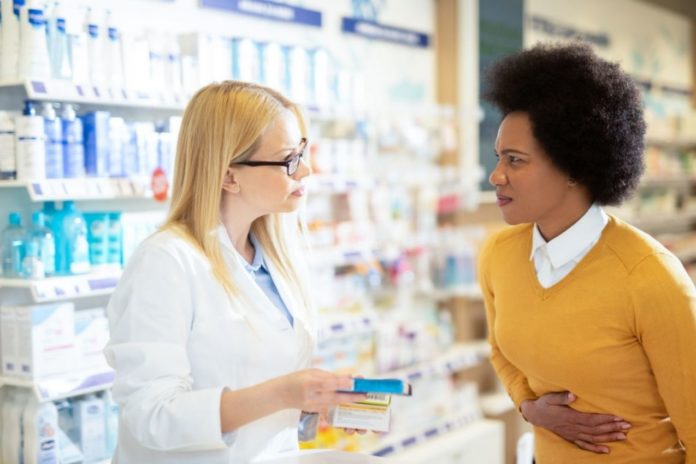Having a good balance of gut bacteria is important for your health. But having too much bacteria – and in the wrong place – can cause problems from acid reflux and bloating to diarrhoea to IBS.
Many experts say that doctors mostly put forward this as the main cause of patients’ condition. Researchers stress that there are many other conditions that could rest at the root of the problem — and, ironically, the treatment given to patients to ease their gut symptoms could make it worse.
- Does This Mean We Stopped Being Animal and Started Being Human Due to ‘Copy Paste’ Errors?
- The One Lifestyle Choice That Could Reduce Your Heart Disease Risk By More Than 22%
- Aging: This Is What Happens Inside Your Body Right After Exercise
- Immune-Boosting Drink that Mimics Fasting to Reduce Fat – Scientists ‘Were Surprised’ By New Findings
- Gun Violence in America: What They Don’t Talk About at the Debate
Experts suggest that a simple breath test for small intestinal bacterial overgrowth (SIBO) can help doctors around the world find the main culprit of the problem.
It occurs when there is enough bacteria in the small intestine to generate harmful gases namely hydrogen and methane that can cause symptoms such as belching and bloating in the upper end of the digestive tract and can also cause heartburn-like symptoms or a feeling of a lump in the throat.
If there is too much bacteria in the lower end of the small intestine, this can produce lower bowel symptoms, such as cramps, bloating, changes in bowel habit, diarrhoea and loose stools.
In simple words, IBS-like symptoms.
The research, published in the medical journal Surgical Endoscopy, found that up to two-thirds of IBS cases could be due to bacteria overgrowth, and two-thirds of 104 patients referred with regurgitation symptoms that had proved resistant to treatment, also had SIBO.
Despite it’s widely recognized now many patients with IBS could have SIBO, understanding of the condition commonly is still poor among doctors and gastroenterologists, so people are rarely referred for it, according to Nick Boyle, a reflux surgeon based in Tunbridge Wells and lead author of the study.
And due to this reason, patients who have been suffering from these symptoms for years and are said to have IBS or reflux and that they live with it, when actually they have SIBO, which is treatable and curable, claims the researcher.
This contrasts with IBS, for which there is no cure — although antispasmodics, laxatives, and other treatments can help manage symptoms.
One of the most common reasons for the problem, as highlighted by Mr. Boyle, are Proton-pump inhibitor (PPI) drugs prescribed to cure heartburn and acid reflux.
Another study, published in the European Journal of Clinical Investigation in 2010, pointed out that 26 per cent of patients taking the drugs for oesophagitis had developed SIBO after eight weeks. All had tested negative for the condition before taking PPIs.
And a 2019 study of 1,500 patients, published in the Mexican Journal of Gastroenterology, found that 92 per cent of those prescribed these drugs for gastric reflux and stomach ulcers reported suffering from IBS-type symptoms, with 82 per cent suffering bloating and 63 per cent complaining of abdominal pain.
Mr Boyle emphasises that PPIs are a good treatment ‘if used in the right people to treat the right conditions’, and that they are effective in preventing cancer in people with Barrett’s oesophagus (a pre-cancerous condition associated with severe reflux).
Antibiotics may also trigger bacterial overgrowth, as these — like the stomach-acid suppressants — can alter the balance of the gut microbiome, the colony of microorganisms in the gut, allowing harmful bacteria to overgrow in the small intestine.
Because SIBO symptoms overlap with those of more serious conditions, such as inflammatory bowel disease, coeliac disease and cancer, these need to be ruled out, says Mr Boyle.
After the diagnosis is confirmed, treatment includes antibiotics. A study in the journal Gastroenterology in 2013 found that rifaximin can improve SIBO symptoms in up to 64 percent of cases, but the drug is expensive, so is not always widely available and is usually prescribed only by specialists.
The same study found that cheaper, broad-spectrum antibiotics, such as ciprofloxacin, metronidazole, and tetracycline, were effective in 41 percent of cases and can be tried instead.
‘The idea is that if you’ve had a long course of antibiotics and they’ve killed off certain bacteria, a course of different antibiotics can then be used to kill off bacteria that have overgrown, especially in the small intestine where they shouldn’t be in the first place,’ he says.
Trying a low-FODMAP diet for four to six weeks under the supervision of a dietitian after a course of antibiotics may also help, says Mr Boyle. ‘Removing the foods that bacteria feed on effectively starves them out.’
- Does This Mean We Stopped Being Animal and Started Being Human Due to ‘Copy Paste’ Errors?
- The One Lifestyle Choice That Could Reduce Your Heart Disease Risk By More Than 22%
- Aging: This Is What Happens Inside Your Body Right After Exercise
- Immune-Boosting Drink that Mimics Fasting to Reduce Fat – Scientists ‘Were Surprised’ By New Findings
- Gun Violence in America: What They Don’t Talk About at the Debate
Some people need surgery for reflux so they no longer have to take PPIs.
There is still controversy about how common SIBO is, how best to test for it and treat it. There are also questions over the link to PPIs, with studies, including one in the journal Gastroenterology in 2016, showing that patients with IBS had SIBO even when they didn’t take acid-suppressant pills.
Image Credit: iStock
